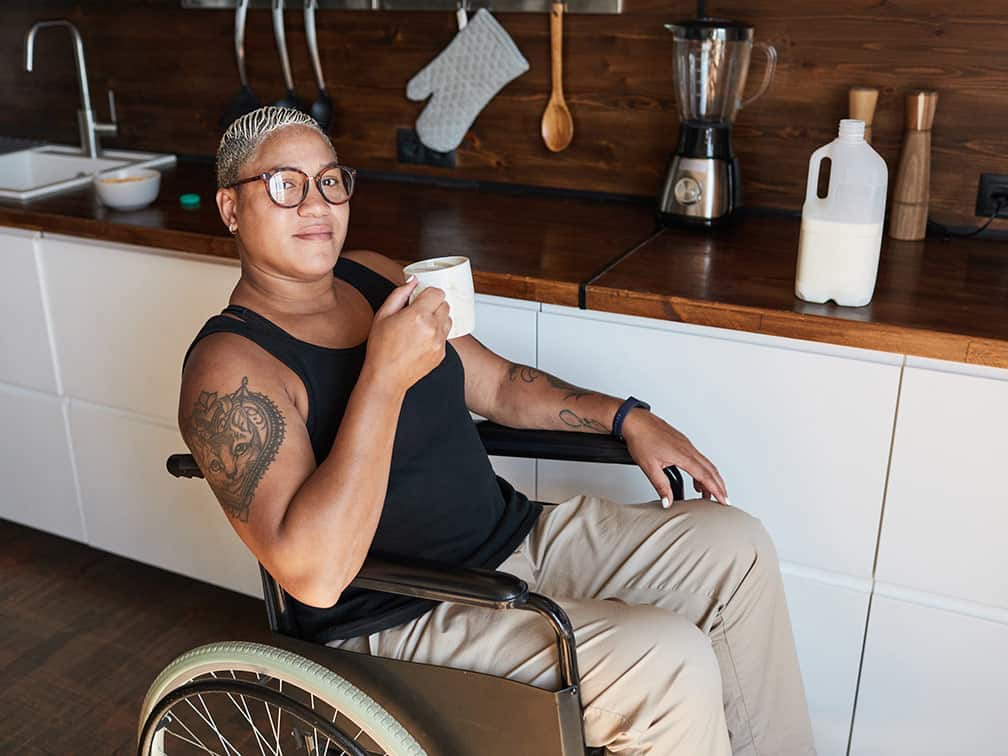An Individualised Living Option (ILO) gives you the freedom to choose the home you live in and will provide the supports needed set up your unique supports. These supports will help you work out how you want to live your day-to-day life, where you want to live, and who you want to live with. There are a lot of choices with ILO, you can either:
- Share a home with friends or housemates.
- Live in the home with a host family.
- Live on your own with the support you need.
ILO supports are designed to work with other support you receive including NDIS support coordination, support from your family or friends, or other networks so that you can have a sense of belonging, build connection with others, and live a safe and supportive lifestyle
ILO Supports are added to your plan in two stages:
- The first stage relates to exploring and designing the supports you need. You will work out where you want to live, the supports you’ll need and who you want to provide that support.
- The second stage is providing the support to put all you need into place. The support depends on how and where you want to live.
ILO supports can be changed, and will be designed to offer the safety, stability, and flexibility you need. The NDIS will identify which supports are necessary to fund for the second stage once you have completed the first stage.
ILO might be right for you if:
- You are over the age of 18.
- You need assistance at home for at least six hours per day.
- You are ready to explore your home and living needs.
- You are willing to invest time and effort towards creating your future home.
- Your family or friends might be part of your ILO supports.
Often, those who you know well can play an important part in helping you explore options and make decisions. You can involve them in helping to design and manage your ILO.
What support could your ILO include?
- Assistance in decision making, including where you want to leave, and the supports you need to make that happen.
- Personal care, such as shopping and cooking.
- Help to set up and manage your home.
- Support in building your independence.
- Building and maintaining connections with others.
- Help with day-to-day decision making.
- Support in managing behaviour and emotions.
- Unpaid volunteers, family, friends, neighbours, or carers who help you on a regular basis
- People on-call available to help when needed.
- Training for those who support you.
ILO supports don’t usually include support for activities outside your home, like work or study, playing sport or socialising outside. However, there are other ways that we can help with these. You may also need separate support for other home and living such as home modifications.
At Nextt, we can help you identify if ILO supports is suited for you. For more information click here to fill out an enquiry form or contact us on 1300 369 568.










